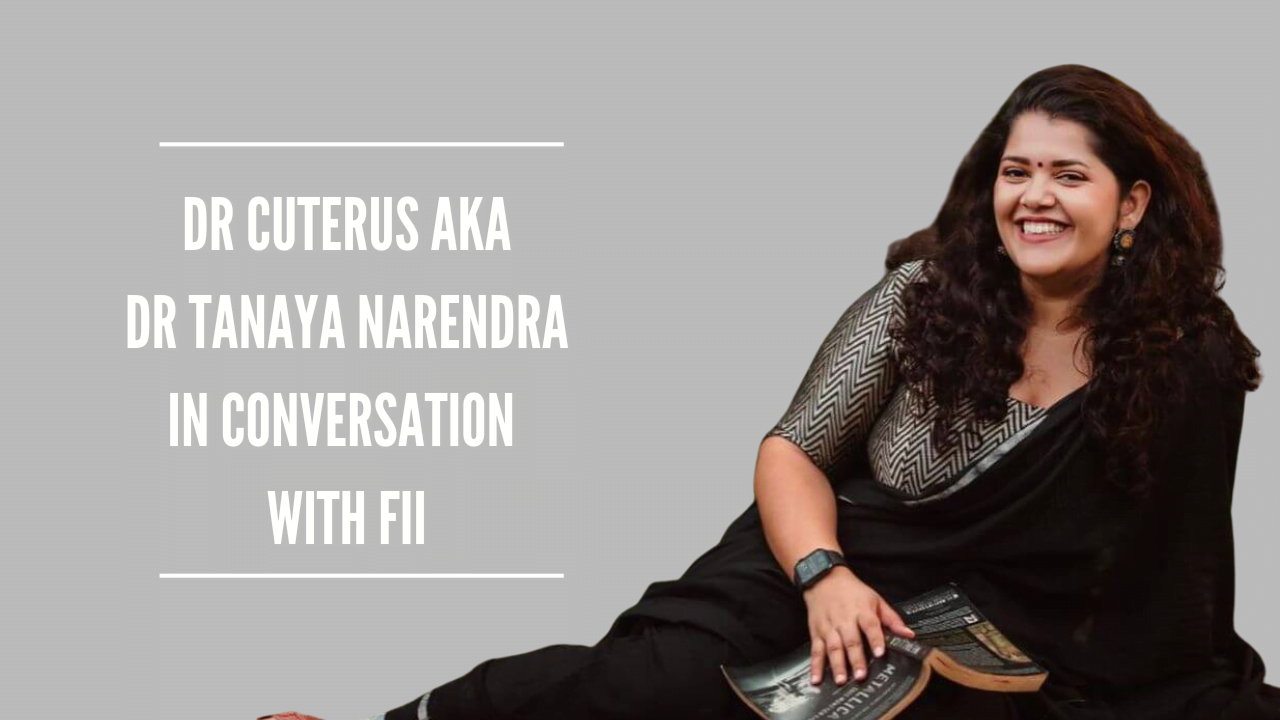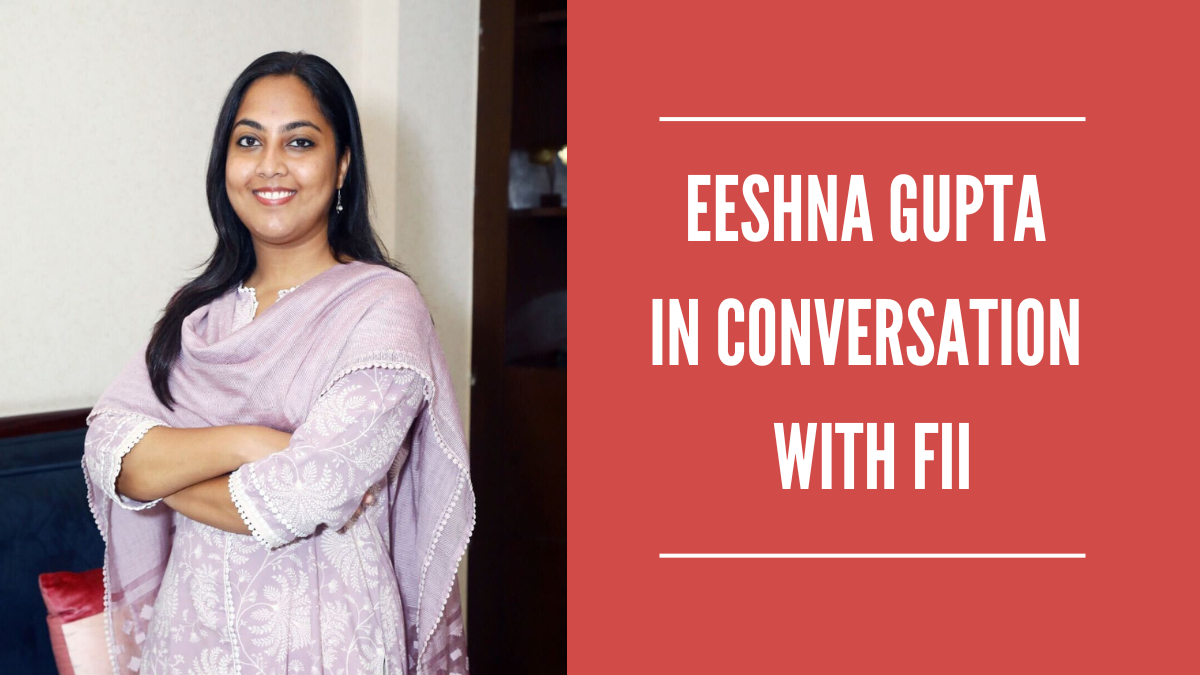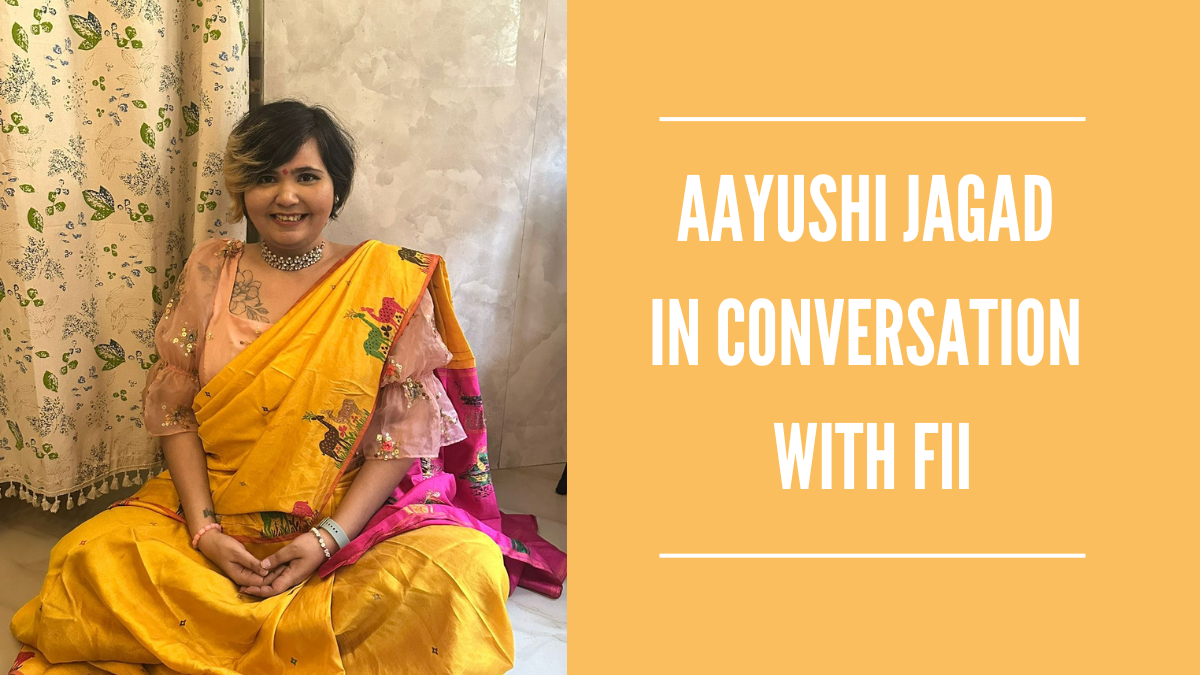Dr Tanaya Narendra, better known as Dr Cuterus, is a doctor, health educator and medical content creator on social media. Through her Instagram, YouTube channel and podcast, she simplifies sexual health concepts as well as debunks common myths about the human anatomy, especially misinformation about reproductive organs and functions. Her social media content stands out for its candour and humorous adaptations of complex topics.
She has also recently authored a book called Dr Cuterus: Everything Nobody Tells You About Your Body (2022), which advocates for a more sex-positive approach towards our bodies.
In this conversation with FII, Dr Tanaya speaks about ways to increase women’s access to reproductive healthcare as well as the problems in implementing comprehensive sex education in India, among other things
FII: Young people, especially in India, oftentimes don’t have access to adequate or reliable information about their bodies and sexualities. What are some of the biggest gaps and challenges that India faces when it comes to holistic sex education?
Dr Tanaya: The lack of sex education is a problem at an institutional level. This is further complicated by the fact that most people get their sex education from pornography. In a country where there is already such a violent attitude towards women and their bodies, this is a very difficult situation to be in, given how misogynistic porn tends to be. We struggle with people gleaning all kinds of wrong ideas about not just sex, but also about women, from pornography.
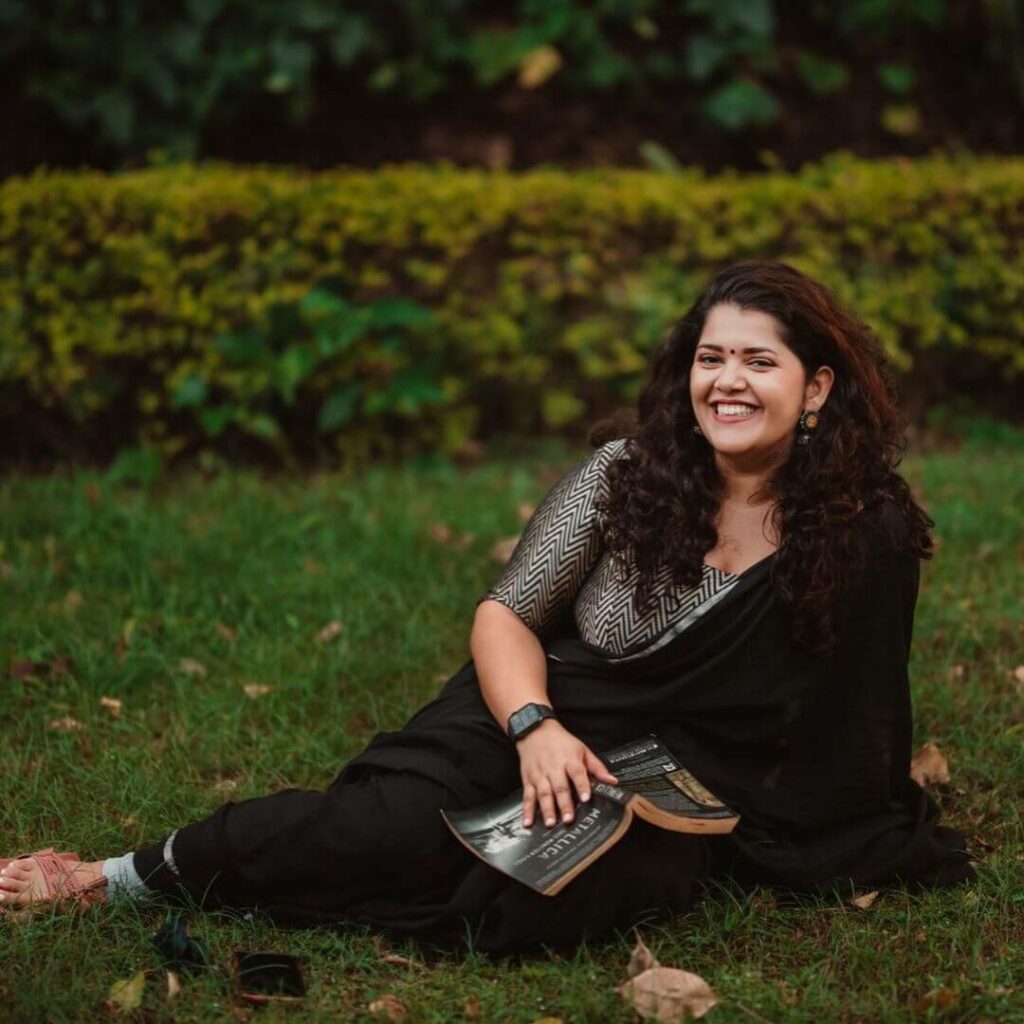
On top of that, whenever there is a movement, a petition, or a bill in the Parliament that pushes forward the agenda of comprehensive sex education, it somehow becomes an attack on the morality of the country. It gets blown out of proportion, and it becomes a very big political agenda. So something as simple as health education should not be a political topic, and yet somehow it continues to be super divisive. All of this plays out against the backdrop of the hyper-patriarchal, hyper-paternalistic and hierarchical society that we live in.
FII: You are one of the influential voices that have encouraged young women in India to take the HPV (Human Papillomavirus) vaccine. What are some of the structural challenges that stand in the way of women having access to the vaccine?
Dr Tanaya: The biggest barrier continues to be financial. The vaccine is quite expensive. Even the cheapest version costs Rs 2,000 per dose which is not affordable for most people in this country.
Once you cross that barrier it comes to poor education and awareness. Many doctors themselves are not fully educated about this vaccine. A lot of people come and tell me that their doctor has told them that this vaccine is of no use for them now that they are married or now that they are a certain age. There have been several training programs conducted under the aegis of the Federation of Obstetric and Gynaecological Societies of India (FOGSI) as well as the Indian Association of Paediatricians (IAP). But we still have a very long way to go in terms of creating awareness.
HPV is a sexually transmitted virus, so I think the foundational problem with this vaccine is that there’s a moral panic associated with it. People think that if we get women vaccinated against this, it automatically means that they are going to start having sex left, right and centre, now that they are protected from a sexually transmitted infection. There are a lot of conspiracy theories and active disinformation circulating about this vaccine.
Dr Tanaya Narendra
HPV is a sexually transmitted virus, so I think the foundational problem with this vaccine is that there’s a moral panic associated with it. People think that if we get women vaccinated against this, it automatically means that they are going to start having sex left, right and centre, now that they are protected from a sexually transmitted infection. There are a lot of conspiracy theories and active disinformation circulating about this vaccine. And this is one of the most well tested vaccines in the world, with excellent safety. But even then we are plagued by allegations of this vaccine ruining young women.
FII: And how can these barriers be overcome?
Dr Tanaya: The first step would be to include it (HPV vaccine) into the Universal Immunisation Protocol (UIP). We were petitioning with the government to make it a part of UIP but it didn’t really go anywhere. If it becomes a part of the UIP, it will become free, which is probably the best scenario we can imagine, but not necessarily the likely scenario.
Aside from this, we also need to increase access and availability for people of all genders. This is a vaccine that everybody can get. It’s not restricted to AFAB (Assigned Female At Birth) people. So literally anybody can get it. But the thing is that unless you are AFAB or feminine presenting, doctors and institutions don’t necessarily listen and nor provide the vaccine. So that is one big challenge which we have to tackle.
FII: In your experience, how big a role do patriarchal structures and misogyny play when it comes to women’s menstrual and reproductive health in India?
Dr Tanaya: This morning, I was taking a lecture at a degree college in Allahabad on menstrual health and hygiene. And in an audience of about 50 people, I think 35 of them were men. So when we are creating spaces for women, women are not able to reach these spaces that are meant for them. That’s how big the gap is in terms of where we are supposed to be and where we actually are.
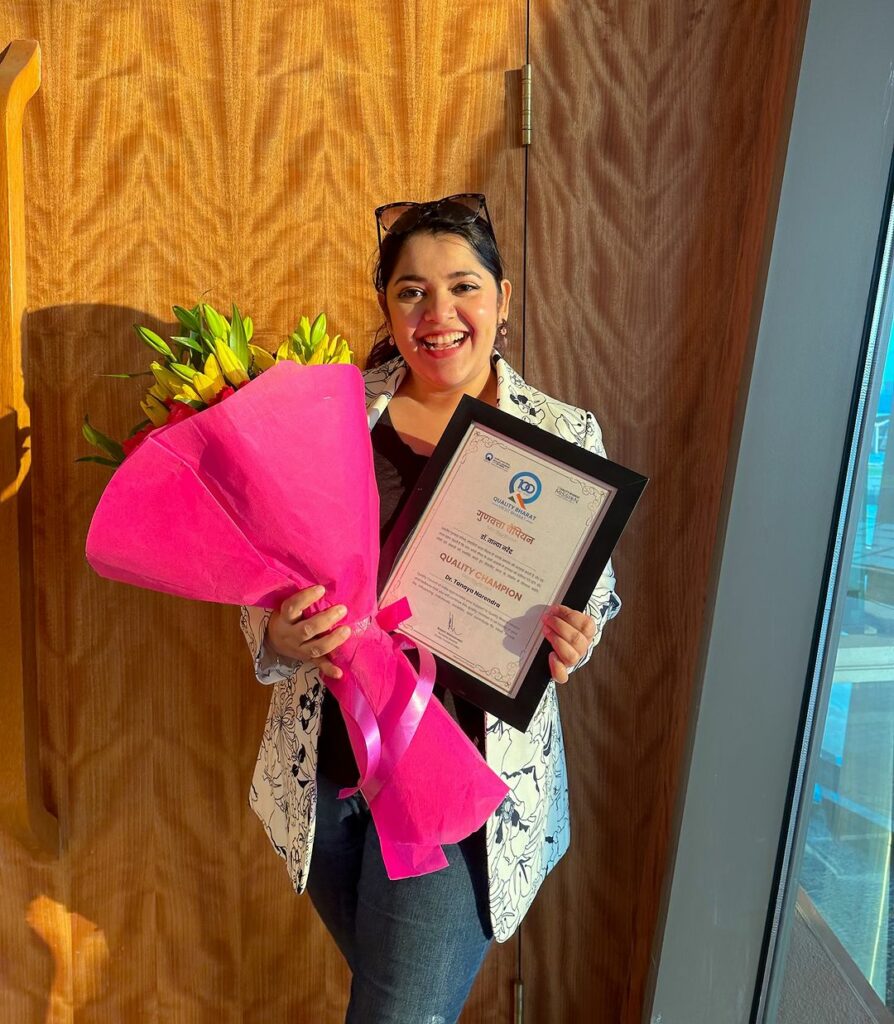
I don’t like using the word menstrual hygiene simply because it implies that menstruation is an unhygienic process. And the fact that we call it menstrual ‘hygiene’ in an institutional format or even in academic language is a signifier of how patriarchy has upheld itself in this space. There is a lot of shame and stigma associated with the bodily process that only women go through or those which are associated with femininity. And this is a consequence of the patriarchal structures that we inhabit.
FII: As a woman on social media, what have been some of the major challenges that you have faced speaking about largely taboo subjects such as sex and sexuality?
Dr Tanaya: I think anybody who’s a woman on the internet is bound to get attacked simply for existing. But I think that the problem is multiplied several times over, when you’re a woman speaking about sex. There’s a lot of personal attacks, a lot of violent and sexual assault threats that come my way.
When I step out in small towns, most of the time the reception is positive, but sometimes I get very negative and very scary reactions. On top of this, there is a strong move to question the validity of my education and qualifications, by way of personal attacks.
Once you’re able to separate the person from the work, it becomes easier – but it is tough to do when it’s about yourself. So in a lot of ways, it’s a difficult position to be in. But then again, the internet makes it easier for me to reach people that I otherwise would not have been able to reach, so I can’t complain.
FII: On social media, a lot of your content is geared towards debunking common myths about our bodies. How challenging has this been given that social media thrives on targeted advertising, and a lot of industries are dependent on marketing campaigns that promote myths to make us feel insecure about our bodies?
Dr Tanaya: One year into my career as a content creator, I fought a court case against a company that sold genital depigmenting or whitening creams, and I had called out some of their claims on social media. They sued me for copyright infringement and we had to fight them in court, it took a whole year for that case to get resolved. Eventually, we were able to sue them back for misrepresentation.

So you know, it’s not only a very dirty space, but it’s also a litigious space. These companies will not stop because they have money to throw at the problem. Even if you’re coming with the right information, they will still find legal loopholes to create trouble for you and silence you.
This is a very unique challenge because you’re always facing this threat of being sued at any given moment. A lot of finances and a lot of resources go into these things, but it’s also medically necessary for us to call out stuff like this simply because they create certain insecurities and then market these insecurities to profit off people’s bodies.
It is a difficult position to be in because not only do you have to raise awareness about something that is associated with societal beauty standards, so half the people are already against it, and on top of that you have to be medically accurate as well as engaging. You have to create content in a way that people want to see and share.
FII: As a doctor and health educator, how do you make your approach intersectional and inclusive when it comes to reproductive or sexual health? What do these terms mean to you?
Dr Tanaya: Well, that’s a big question. I don’t know if I’m the most inclusive person around to be honest, because there’s a very particular subset of people that I see who can actually afford to see me. And I’m not an especially expensive doctor, but to pay Rs 1,000 for a medical consultation is still out of reach for most of this country.
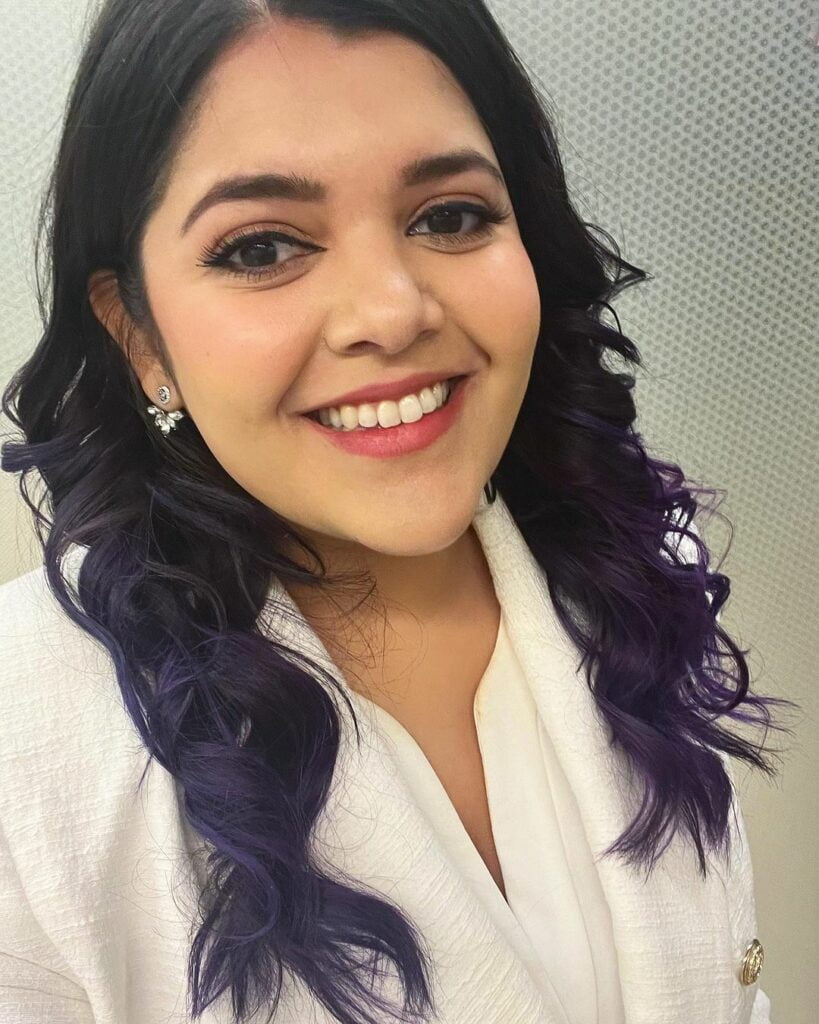
With that said, I do a lot of work online which is for free. So I do need to charge a certain amount of money to continue doing my passion project, which is what I do on the internet. So I don’t know if I’m the most inclusive person around, but I try to learn from the lived experiences of different people via the internet. It teaches me a lot from the patient’s perspective because doctors usually have a top-down way of speaking.
I don’t know if I’m the most inclusive person around, but I try to learn from the lived experiences of different people via the internet. It teaches me a lot from the patient’s perspective because doctors usually have a top-down way of speaking.
Dr Tanaya Narendra
Do you know that meme which reads Don’t confuse your 5 minute Google search with my 10 years of medical school? I mean, yes, I do understand where that’s coming from. But the other meme that I subscribe to says Don’t confuse your 10 years of medical school with my 20 years of living with this condition. This is why I like to be in advocacy spaces where people are talking about all these issues.
Even if I try to the best of my abilities, I’ll never be an ideally inclusive person, because there will always be somebody left out. But, you know, my prejudices don’t inform my medical practice. My lack of knowledge may inform my medical care, because there’s no way for me to know everything. But the attempt is to always challenge my own prejudices, I suppose.
About the author(s)
Divyani is a media and research professional with a background in critical cultural theory. Her core interest areas are digital cultures, sexuality, and mental health. She loves annoying her cat and a good cup of coffee.
